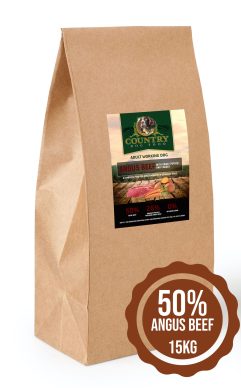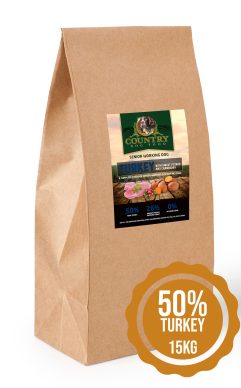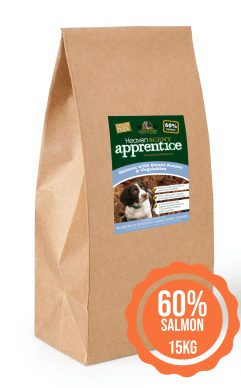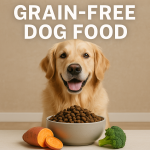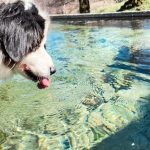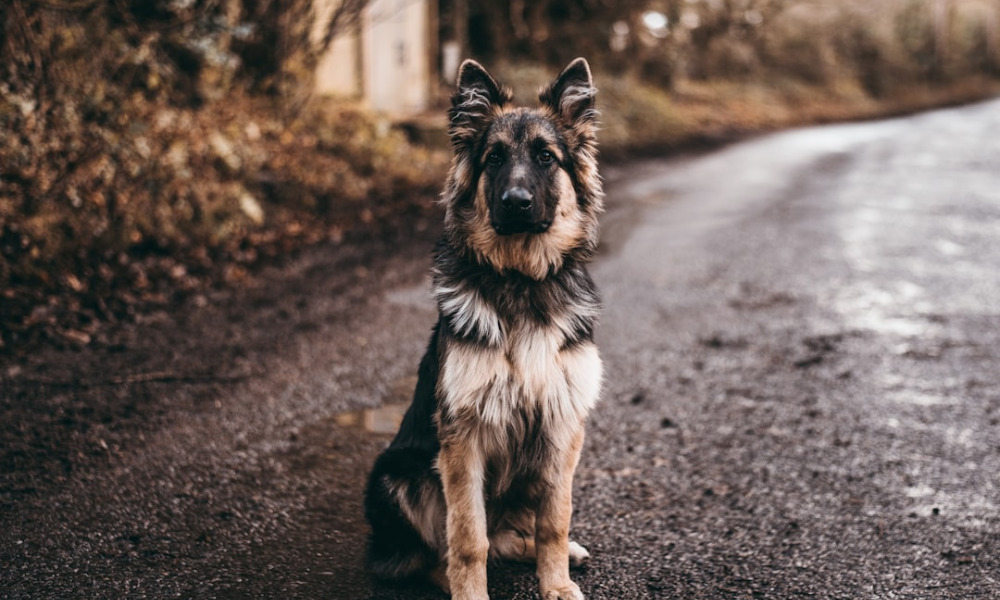
Guard dogs play a crucial role in protecting properties, homes, and even individuals. Breeds such as German Shepherds, Rottweilers, and Doberman Pinschers are commonly used as guard dogs due to their strength, loyalty, and intelligence. These dogs must be in peak physical and mental condition to perform their duties effectively. Feeding them the right diet is key to ensuring they have the energy, strength, and alertness required for their role. In this article, we will explore the specific nutritional needs of guard dogs, discuss feeding practices, and highlight other essential needs to support their health and performance.
Understanding the Role of Guard Dogs
Guard dogs are trained to protect and defend. This job requires them to be vigilant, physically strong, and mentally sharp. Whether they are protecting a home, business, or person, these dogs must be ready to act at a moment’s notice. Their role is not just about physical presence; they also need to make quick decisions, assess threats, and follow commands instantly. Therefore, their diet should support both their physical capabilities and cognitive functions.
Key Nutritional Requirements for Guard Dogs
Guard dogs have specific dietary needs to ensure they remain healthy, strong, and alert. Here are the key nutritional elements to consider when feeding a guard dog:
1. High-Quality Protein
Protein is the cornerstone of a guard dog’s diet. It is essential for building and maintaining muscle mass, which is crucial for strength and endurance. Guard dogs, particularly those that engage in regular physical activity, need a diet rich in high-quality protein sources such as chicken, beef, lamb, and fish. These proteins provide the necessary amino acids that support muscle repair and growth.
For guard dogs, it is important to choose dog foods that list real meat as the first ingredient, rather than meat by-products or fillers. A high-protein diet helps maintain the dog’s lean body mass and supports the physical demands of their job.
2. Healthy Fats
Fats are a vital source of energy for guard dogs. They provide a concentrated form of energy, which is essential for maintaining stamina throughout the day. Fats are also important for maintaining healthy skin and a shiny coat, which can be indicative of overall health.
In particular, omega-3 and omega-6 fatty acids are important for reducing inflammation, supporting joint health, and promoting cognitive function. These fats can be found in fish oil, flaxseed, and animal fats. Including healthy fats in the diet helps keep the guard dog’s energy levels consistent, especially during long periods of activity.
3. Complex Carbohydrates
While protein and fats are crucial, carbohydrates also play a role in providing energy. Complex carbohydrates, such as those found in sweet potatoes, brown rice, and oats, offer a steady release of energy throughout the day. This is important for guard dogs that need to stay active and alert over extended periods.
Complex carbohydrates are preferable to simple carbohydrates because they do not cause spikes and crashes in blood sugar levels. Instead, they provide a sustained energy source that helps maintain endurance and concentration.
4. Vitamins and Minerals
Vitamins and minerals are essential for the overall health of guard dogs. They support various bodily functions, including immune system health, bone strength, and cognitive function. Some key vitamins and minerals for guard dogs include:
- Vitamin A: Supports vision and immune function.
- Vitamin D: Essential for calcium absorption and bone health.
- Vitamin E: An antioxidant that protects cells from damage.
- B-vitamins: Important for energy metabolism and nerve function.
- Calcium and Phosphorus: Vital for bone and dental health.
- Zinc and Selenium: Support the immune system and skin health.
A balanced diet that includes these vitamins and minerals will help ensure that guard dogs remain healthy and capable of performing their duties effectively.
5. Hydration
Proper hydration is often overlooked but is critically important for guard dogs. Water is essential for digestion, nutrient absorption, and temperature regulation. Guard dogs, especially those working in hot or stressful environments, need constant access to fresh, clean water. Dehydration can lead to serious health issues and decrease a dog’s ability to perform its role effectively.
Feeding Practices for Guard Dogs
1. Portion Control
The amount of food a guard dog needs depends on its size, age, and activity level. Overfeeding can lead to obesity, which can reduce a dog’s mobility and increase the risk of health problems such as joint issues and heart disease. On the other hand, underfeeding can result in a lack of energy and poor overall health.
It is important to monitor your guard dog’s body condition regularly and adjust portion sizes as needed. Active guard dogs may require more food to meet their energy needs, while less active dogs may need smaller portions to maintain a healthy weight.
2. Regular Feeding Schedule
Establishing a consistent feeding schedule is important for maintaining a guard dog’s energy levels and digestive health. Most adult dogs do well with two meals per day, typically one in the morning and one in the evening. This routine helps to stabilize their metabolism and ensures they have the energy needed to stay alert and active throughout the day.
Feeding at regular intervals also helps prevent digestive issues such as bloating, which can be a serious concern in large breeds that are commonly used as guard dogs.
3. Special Considerations for Senior Guard Dogs
As guard dogs age, their nutritional needs change. Senior dogs may require fewer calories due to reduced activity levels, but they often need more protein to prevent muscle loss and more joint support to maintain mobility. It’s important to choose a dog food that is specifically formulated for senior dogs or to add supplements such as glucosamine and chondroitin to support joint health.
Additionally, older guard dogs may benefit from foods that are easier to chew and digest, as dental health can decline with age.
Specific Needs of Guard Dogs
In addition to proper nutrition, guard dogs have other specific needs that must be met to ensure they can perform their role effectively.
1. Mental Stimulation
Guard dogs are intelligent and need regular mental stimulation to prevent boredom and frustration. Mental exercises such as obedience training, problem-solving games, and scent work can help keep their minds sharp and focused. A diet that supports cognitive function, including foods rich in omega-3 fatty acids, can enhance their ability to learn and perform complex tasks.
2. Physical Exercise
Guard dogs require regular physical exercise to maintain their strength, endurance, and agility. Exercise not only helps keep them in good physical condition but also provides an outlet for their energy, which can reduce stress and anxiety. A high-protein diet with healthy fats will support muscle recovery and provide the energy needed for intense physical activity.
3. Socialisation and Training
Proper socialisation and training are crucial for guard dogs. They need to be confident and well-behaved in a variety of situations, including around strangers and other animals. Positive reinforcement training methods, along with a balanced diet that includes B-vitamins for nerve health, can help guard dogs remain calm and responsive in their protective role.
4. Routine Health Care
Regular veterinary care is essential for maintaining the health of guard dogs. Routine check-ups can help detect and address health issues before they become serious. Dental care is also important, as dental disease can lead to other health problems and affect a dog’s ability to eat properly.
Vaccinations, flea and tick prevention, and regular deworming are all part of a comprehensive health care routine that will keep guard dogs healthy and ready to perform their duties.
Paws and Reflect: Securing Your Dog’s Diet
Feeding guard dogs the right diet is essential for ensuring they can perform their protective roles effectively. A diet rich in high-quality protein, healthy fats, complex carbohydrates, and essential vitamins and minerals will provide the energy and nutrients these hardworking dogs need. By following best feeding practices and addressing their specific needs, you can support your guard dog’s health, strength, and mental sharpness, keeping them ready to protect and serve.
Incorporating these nutritional guidelines into your guard dog’s routine will help ensure they remain in peak condition, capable of handling the physical and mental demands of their role. Regular exercise, mental stimulation, and routine veterinary care are also critical components of a well-rounded care plan for these remarkable animals. With the right nutrition and care, guard dogs can continue to be reliable and effective protectors.
Food to Feed your Guard Dog
-
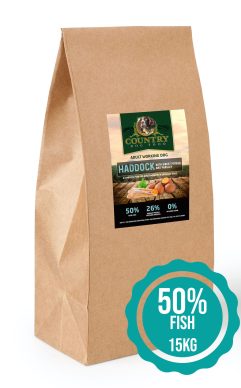 Grain Free Haddock with Sweet Potato & Parsley – Adult Dog Food£64.57
Grain Free Haddock with Sweet Potato & Parsley – Adult Dog Food£64.57 -
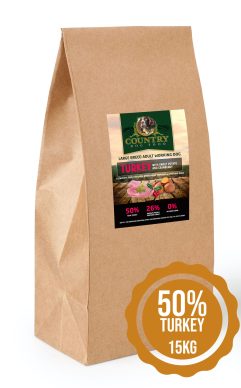 Grain Free Turkey with Sweet Potato & Cranberry – Adult Dog Food£57.84
Grain Free Turkey with Sweet Potato & Cranberry – Adult Dog Food£57.84 -
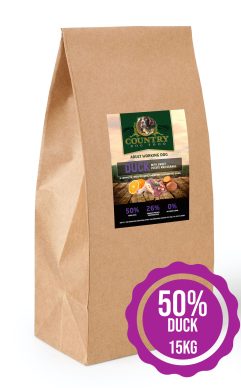 Grain Free Duck with Sweet Potato & Orange – Adult Dog Food£62.62
Grain Free Duck with Sweet Potato & Orange – Adult Dog Food£62.62 -
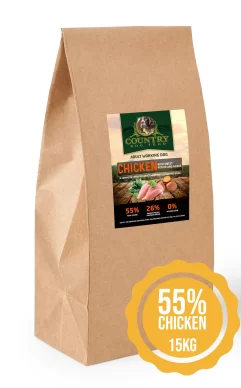 Grain Free Chicken with Sweet Potato & Herbs – Adult Dog Food£55.72
Grain Free Chicken with Sweet Potato & Herbs – Adult Dog Food£55.72 -
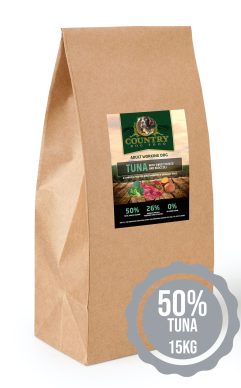 Grain Free Tuna with Sweet Potato & Broccoli – Adult Dog Food£65.50
Grain Free Tuna with Sweet Potato & Broccoli – Adult Dog Food£65.50 -
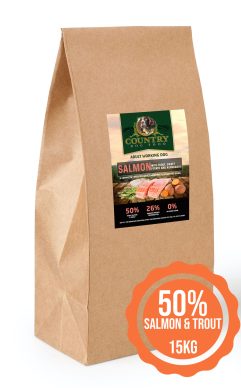 Grain Free Salmon with Trout, Sweet Potato & Asparagus – Adult Dog Food£56.97
Grain Free Salmon with Trout, Sweet Potato & Asparagus – Adult Dog Food£56.97 -
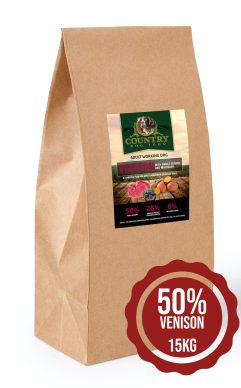 Grain Free Venison with Sweet Potato & Mulberry – Adult Dog Food£67.34
Grain Free Venison with Sweet Potato & Mulberry – Adult Dog Food£67.34 -
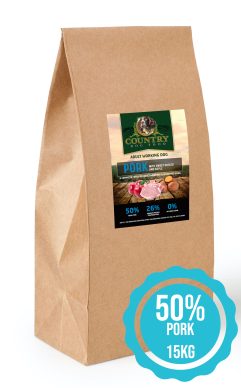 Grain Free Pork with Sweet Potato & Apple – Adult Dog Food£58.34
Grain Free Pork with Sweet Potato & Apple – Adult Dog Food£58.34 -
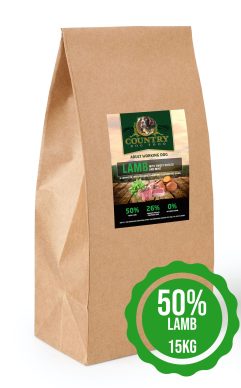 Grain Free Lamb with Sweet Potato & Mint – Adult Dog Food£63.39
Grain Free Lamb with Sweet Potato & Mint – Adult Dog Food£63.39

